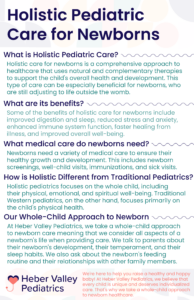Plan Ahead for Safe Travel with the Pediatric Specialists at Heber Valley Pediatrics
Spring break is right around the corner, and for many families, that means exciting travel plans! Whether you’re venturing to a sunny beach, exploring a historic city, or embarking on an adventurous expedition, ensuring your family’s health is paramount. The pediatric specialists at Heber Valley Pediatrics understand the importance of being prepared, especially when traveling internationally.
International travel exposes you to new environments, cultures, and, unfortunately, potential health risks. While many of us may not encounter certain diseases in our daily lives here in the United States, they remain prevalent in other parts of the world. To protect yourselves and your loved ones, vaccination is key.
Here at Heber Valley Pediatrics, we want to help ensure your family has a safe and healthy spring break adventure. This blog post provides valuable information about travel vaccinations, helping you plan ahead and make informed decisions.
Why is Getting Vaccinated Before Travelling Important?
Getting vaccinated before traveling is important for several reasons:
1. Protects you from unfamiliar diseases: International travel exposes you to new environments and potentially unfamiliar diseases that are uncommon or even eradicated in your home country. These diseases can be serious and even life-threatening. Vaccination helps build your immunity, making you less susceptible to contracting these illnesses.
2. Protects your loved ones and community: If you contract a disease while traveling, you risk bringing it back with you and spreading it to your family, friends, and community. Vaccination not only safeguards you but also helps create a “herd immunity” effect, protecting those around you who may not be vaccinated or have weaker immune systems.
3. Meets entry requirements: Certain countries have mandatory vaccination requirements for entry. Failure to present proof of vaccination for these specific diseases could result in denial of entry or even quarantine upon arrival.
4. Ensures a healthy and enjoyable trip: Getting sick during your travels can disrupt your plans and put a damper on your entire experience. By being vaccinated by one of our pediatric specialists, you significantly reduce your risk of falling ill and allow yourself to focus on enjoying your trip to the fullest.
5. Promotes public health: By getting vaccinated, you contribute to global efforts to control and even eradicate certain diseases. This protects not just yourself and your immediate community, but also vulnerable populations around the world.
In conclusion, getting vaccinated before traveling is a crucial step in ensuring a safe, healthy, and responsible travel experience for yourself and those around you.
Step 1: Be Up-to-Date on Routine Vaccinations
Before diving into specific travel recommendations, it’s crucial to ensure everyone in your family is up-to-date on their routine vaccinations. These vaccines are vital in protecting you from common and potentially serious diseases, such as measles, mumps, and rubella.
Step 2: Research Your Destination with CDC’s Help
The next step is to research your specific travel destination. The Centers for Disease Control and Prevention (CDC) offers a wealth of resources through their Travelers’ Health website. This website provides destination-specific information on:
- Recommended and required vaccines for your chosen location.
- Potential health risks associated with your destination.
Step 3: Schedule an Appointment with Our Pediatric Specialists
Planning ahead is crucial when it comes to travel vaccinations. Schedule an appointment with one of our pediatric specialists at least four to six weeks before your departure. This allows ample time for vaccinations that may require multiple doses or have specific waiting periods before travel. We also offer same-day vaccination appointments.
During your appointment, discuss the following with your healthcare provider:
- Your itinerary and planned activities – This helps them tailor recommendations to your specific risk factors.
- Any pre-existing health conditions – Certain conditions may require additional considerations for vaccination.
- Your medical history – Knowing previous vaccinations and any potential allergies is essential.
Step 4: Getting Your Travel Vaccinations with Our Pediatric Specialists
Your healthcare provider or travel clinic can administer many travel vaccinations. In some instances, specific vaccines like yellow fever may require visiting an authorized yellow fever vaccination center.
Examples of common travel vaccines include:
- COVID-19
- Chickenpox
- Cholera
- Flu (Influenza)
- Hepatitis A
- Hepatitis B
- Japanese encephalitis
- MMR (Measles, Mumps, Rubella)
- Meningococcal
- Pneumococcal
- Polio
- Rabies
- Shingles
- Tdap (Tetanus, Diphtheria, Pertussis)
- Typhoid
- Yellow fever
Remember, this list is not everything. Your healthcare provider will determine the specific vaccinations your family needs based on your destination and individual circumstances.
Step 5: Additional Resources
For further in-depth information, consult the CDC’s Yellow Book: Travel Vaccine Summary Table. This comprehensive resource provides detailed information on various travel vaccines, including recommended age groups, dosage schedules, and potential side effects.
Things to Remember from Our Pediatric Specialists:
Here are some additional things you need to know about travel vaccinations:
1. Not all travel vaccinations are one-time shots. Some vaccines require a series of doses spread out over weeks or even months. It’s crucial to plan well in advance to ensure you complete the entire vaccination schedule before your departure.
2. Certain vaccinations may have age restrictions or recommendations. Discuss these with your pediatric specialists, especially for children or adults above a specific age.
3. Some travel destinations may recommend medications like antimalarials in addition to vaccinations. Your healthcare provider will advise you on these based on your specific itinerary and potential risks.
4. It’s essential to be transparent with your healthcare provider about any allergies or pre-existing medical conditions. This helps them determine if specific vaccines are safe and appropriate for you.
5. Don’t hesitate to ask questions! Your healthcare provider is there to address any concerns you may have about travel vaccinations, potential side effects, or any other aspect of preparing for a healthy trip.
6. Remember, even with vaccinations, certain precautions are still essential while traveling. These include practicing good hygiene, being mindful of what you eat and drink, and following safe travel practices recommended by the CDC and local authorities.
At Heber Valley Pediatrics, we are committed to providing your family with the highest quality healthcare, including pre-travel consultations and vaccinations. We encourage you to schedule an appointment with us at least four to six weeks before your spring break adventure, but our pediatric specialists also take same-day appointments. Together, we can ensure your family enjoys a safe and healthy trip, creating lasting memories.
Remember, planning and preparation are key to a successful and enjoyable spring break experience. By prioritizing travel vaccinations and seeking expert advice, you can start on your adventure with peace of mind, knowing your family is well-protected.
Happy travels!






1 comment